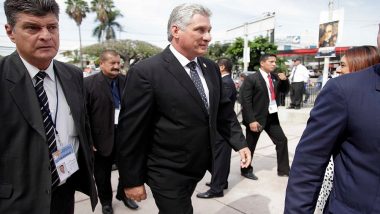When Cuba’s president Raul Castro steps down this week, it will be the first time since 1959 that the island-nation will be led by somebody whose last name is not Castro.
The country’s national assembly selected the current vice-president, Miguel Díaz-Canel, to replace Raúl Castro, and the nomination is likely to be backed unanimously and officially announced to its citizens on Thursday, April 19. Raul Castro, 86, according to Cuban government officials, plans to move to Santiago de Cuba, the city where his brother Fidel was buried, he is still expected to exercise a large measure of control over the Cuban government and have the final say on important decisions. Though relieved of the presidency, he will remain a political presence, staying on as first secretary of the Communist party until 2021.
The Guardian notes that as former minister of higher education, Díaz-Canel has been criticised for coming across as stiff in his occasional media appearances, but his image is radically different from the late and his brother Raúl. As the first secretary of the provincial Communist party in Villa Clara province in the 1990s he was known for his long hair, riding his bicycle and walking around in Bermuda shorts. He was a strong advocate for LGBT rights at a time when homosexuality was frowned upon by many in the party. Crucially, he was born after the Cuban revolution and if elected, Díaz-Canel will also be the first non-soldier in charge of the nation since the revolution that toppled right-wing dictator Fulgencio Batista’s rule.
The President-elect studied electrical engineering and began his political career in his early 20s as a member of the Young Communist League in Santa Clara. While teaching engineering at the local university, he worked his way up the ranks of the Young Communist League, becoming its second secretary at the age of 33. The BBC reports that Raúl Castro has praised his "ideological firmness".
Miguel Díaz-Canel has promised to follow the course set by the Castro brothers. "I believe in continuity," he told reporters recently when asked about his vision for Cuba's future. "I think there always will be continuity."
Diaz-Canel is Cuba’s only third head of state since Fidel Castro was sworn in as Prime Minister from 1959-1976 and then as President from 1976-2008. Ill health and a botched surgery led the older Castro to step down and he was succeeded by his younger brother Raul Castro.
Cuba has been symbolic of revolution, the country synonymous with Che Guevara t-shirts worn by revolutionaries and wannabes alike. But with sixty years of Castro rule do the Cubans aspire for something different? And will Diaz-Canel be able to manage that aspiration?
(The above story first appeared on LatestLY on Apr 19, 2018 12:44 PM IST. For more news and updates on politics, world, sports, entertainment and lifestyle, log on to our website latestly.com).




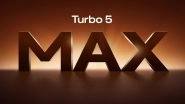
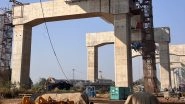

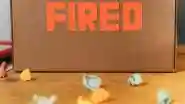
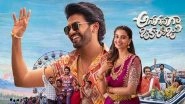




 Quickly
Quickly